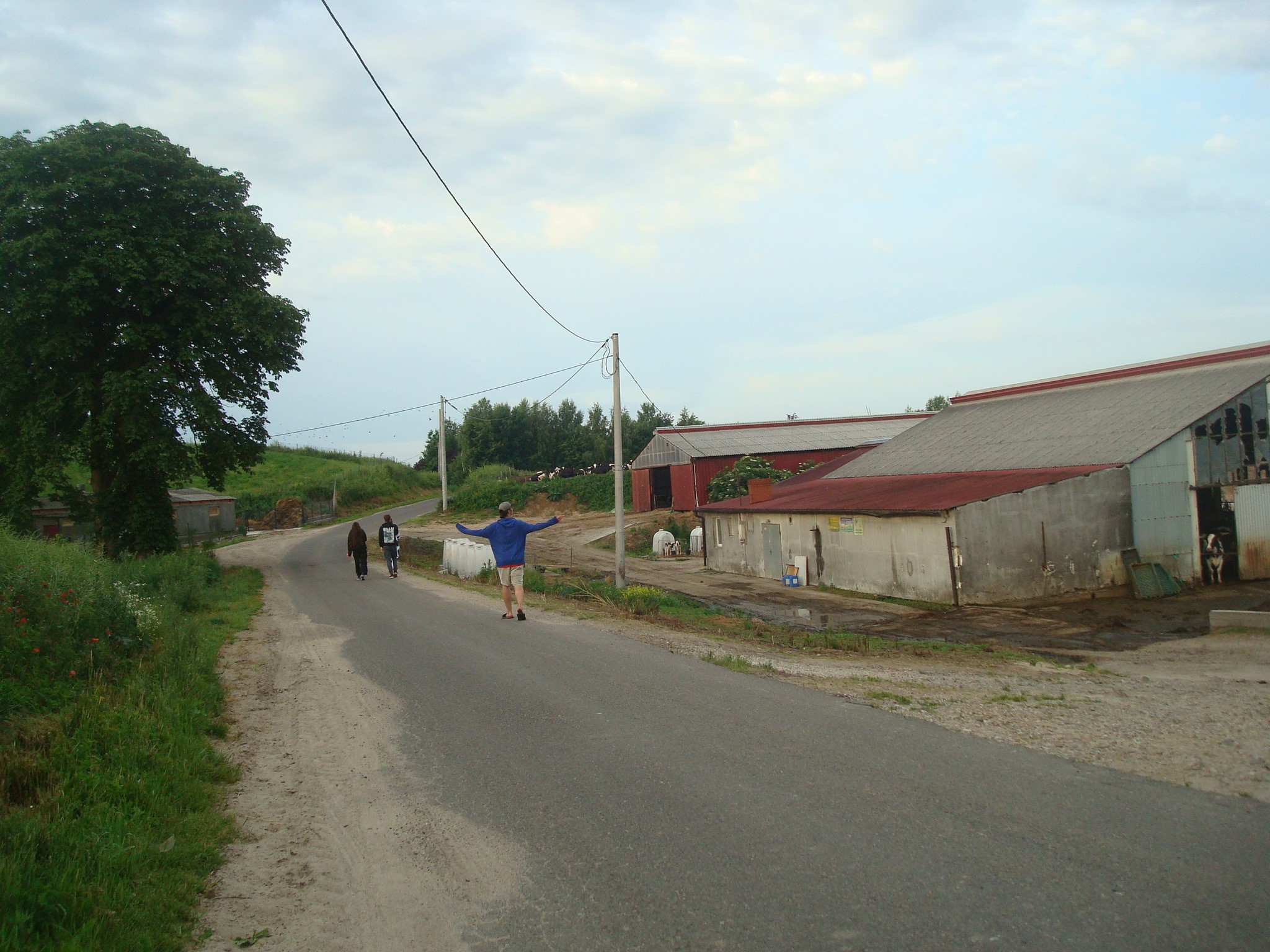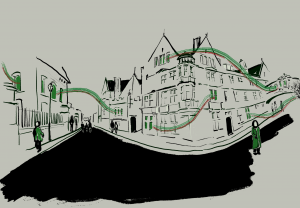Why should we assimilate?
by Julia Szypula | July 5, 2024

‘You don’t belong here.’ The painfully familiar words seem to apply even more to Eastern European students than your average imposter syndrome sufferer. But why would that be the case when first generation families have been present in the UK since the 1920s, running away from war, socialism, or the slowly growing economy following our emancipation? Unfortunately, domestic students will never understand this issue, and in most cases, they won’t even try. After all, we are the ones new to the UK, let alone to the bubble of Oxford, and we are the ones who should acclimatise ourselves. Nonetheless, I believe that this widespread ignorance is what makes this topic so fascinating. Take me for example, a Polish student from Warsaw, a rather Western European city compared to other Polish cities, who would prefer to pretend that Warsaw is loathsome when juxtaposed with London or Berlin, than admit its virtues. I long for my ‘cute’ Polish accent to become British, to be free of the one thing that marks me out besides my last name. No one would even notice if one day I would somehow adjust my accent and pass as British for just a second. Oh, what a dream…
That’s the issue with us Eastern Europeans, we either adjust or become cynical.
My parents have been preparing me for the international lifestyle from an early age: putting me in international schools, flying me off to every country in the world, and introducing me to Oxford and Sorbonne since I was 12. It dawned on me pretty soon that they bet all their money on me, gambling away my feeling of freedom of choice. Their desperation must have rubbed off on me, seeing where I am right now, but I never could quite grasp what had driven them to go to such extremes. It was clear that studying in Poland, or anywhere else in Eastern Europe for that matter, was not an option. This could all be attributed to their upbringing in socialist Poland where one rarely had such an opportunity, or to the rising hostility in Eastern European politics in the past few years, but then again, this lifestyle was never forced on my brothers. Was it then because they shared the same mindset with most of us Easterners – that we so desperately believe what is ours will never be enough? Or perhaps being the youngest of the children of four meant that all their hopes and dreams were bestowed on me, the ‘perfect’ girl from their new marriage, the first one to study abroad and bring pride to the family name? My parents’ upbringing in socialist Poland could be irrelevant, but it was that upbringing that made them look for their past in the present and enforce ideas of the West being inherently better. I think an upbringing bombarded by propaganda made them insistent to teach us to think and form opinions on our own. Paradoxically, it could be because we see ourselves as so worldly that we attribute our worst traits to home, and the best to “whatever is out there”. But yet again, wouldn’t the horrific stories of our parents’ pasts make us apprehensive about staying in Poland?
This race for equality with the West will never end, as we will always be measuring ourselves by the standards imposed on us for ages, most importantly after the fallout of the Cold War. We will never be enough unless we share the same politics, laws, customs, culture, and lifestyle as our Western European brothers and sisters. We hear this in history classes in school, in everyday comparisons with friends, with the sensitivity that comes when discussing politics, and with the oh-so-present ‘we are finally becoming civilised’ whenever any new invention or idea is introduced in our countries.
I devoted the whole of the first year to the adjustment period, comprising countless alterations. How could that hurt: just a little self-criticism here, a brush of slang there, a minor change in my personality, and it’s perfect! It’s perfect in the same way I felt ‘perfect’ when I did everything to adhere to the women’s standards in 2020 Poland, even amidst the protests fighting for our rights to our own bodies… I noticed this change the most coming back after Michaelmas. Suddenly my own country, my own city, and my own room didn’t feel like home. The ego death of the ethnos – a betrayal of my country of the highest form. So much pressure was put on me, primarily by my parents who I believe would love the change in my accent even more than I would, but the pressure that hurt more was the one coming from within me. I spent all summer praising Poland to prospective friends, trying to make them realise that my country should not be limited down to stereotypes. But I couldn’t constantly be defending my country from accusations of alcoholism, bad politics, and overall backwardness just to leave it in the past once the first opportunity came.
Why did I first assimilate? To be spared. Spared from the twinges that would remind me of the loss of my culture in this foreign place I would feel with every laughter at my accent, every unsuccessful attempt at explanations that the Polish government is genuinely getting better, every sneer at how weird my language is. I suppose there was an inherent block within me screaming at me to stop, however, when for the first time in my life, my accent couldn’t change. Three terms in, I still make people laugh and mispronounce a word every day. The combination of my insubordinate accent, and coincidentally being bedridden for more than half of Hilary, led me to rethink my treacherous position.
Three terms in I wish I had the answer to the question posed at the top. None of the things I did to assimilate made me feel better, which is why I decided to write this article as a warning and a reminder to myself. We should not assimilate. Oxford is a unique place, and getting a place here is unique enough, which no doubt we will be praised for years to come, but when you are at Oxford, there is a lot of pressure on being something more than you already are. Sure, talents and passion differentiate us and stop that nagging thought in our brain “You are nothing in the time scale of the whole world”. International students, and especially Eastern Europeans, have the possibility of bringing ‘something new’ to this almost thousand-year-old city. We can subconsciously force people to confront their thoughts and presumptions about highly stereotyped countries. After all, I did meet people who see Poland for nothing more than its socialist history and vodka. Our nationality is what makes us individual, it represents our history, our culture, our struggles, and who we inherently are. There is no reason for us to suppress what makes us “us” when it can enhance the conversation, and show the new perspectives for which we were after all allowed to spend these crucial years of our lives here. In my case, over time people started to recognise the wonderful parts of Poland too. By listening to my history and conservations, my friends have found their favourite parts of Polish culture. Starting from words, which while so unfamiliar, can become a beautiful staple of our everyday conversations, and ending with Polish cuisine. A cuisine that contains in itself the history of our socialist struggles with poverty, stories of cake recipes passed down from generations, and of course our obsession with cheese and flour. We can praise the country and notice its faults, without necessarily using them to put ourselves down.
I am not yet sure what brings so much pressure on us to assimilate – if it’s the city, the people themselves, or perhaps all of those. I recall being at Fresher’s Fair watching people coming to their country’s stand, and the joy they felt. In this ultimately foreign city, we all need something to remind us of home, and the more of that home we bring here, the more we will gain from it. Once we remember that there is no strict rule about being and feeling international, perhaps we can embrace it and use it not as a superimposed stereotype, but rather as a trait we can all draw from. This way we’ll always feel like there are two homes, instead of none. ∎
Words by Julia Szypula. Image courtesy of Julia Szypula.




